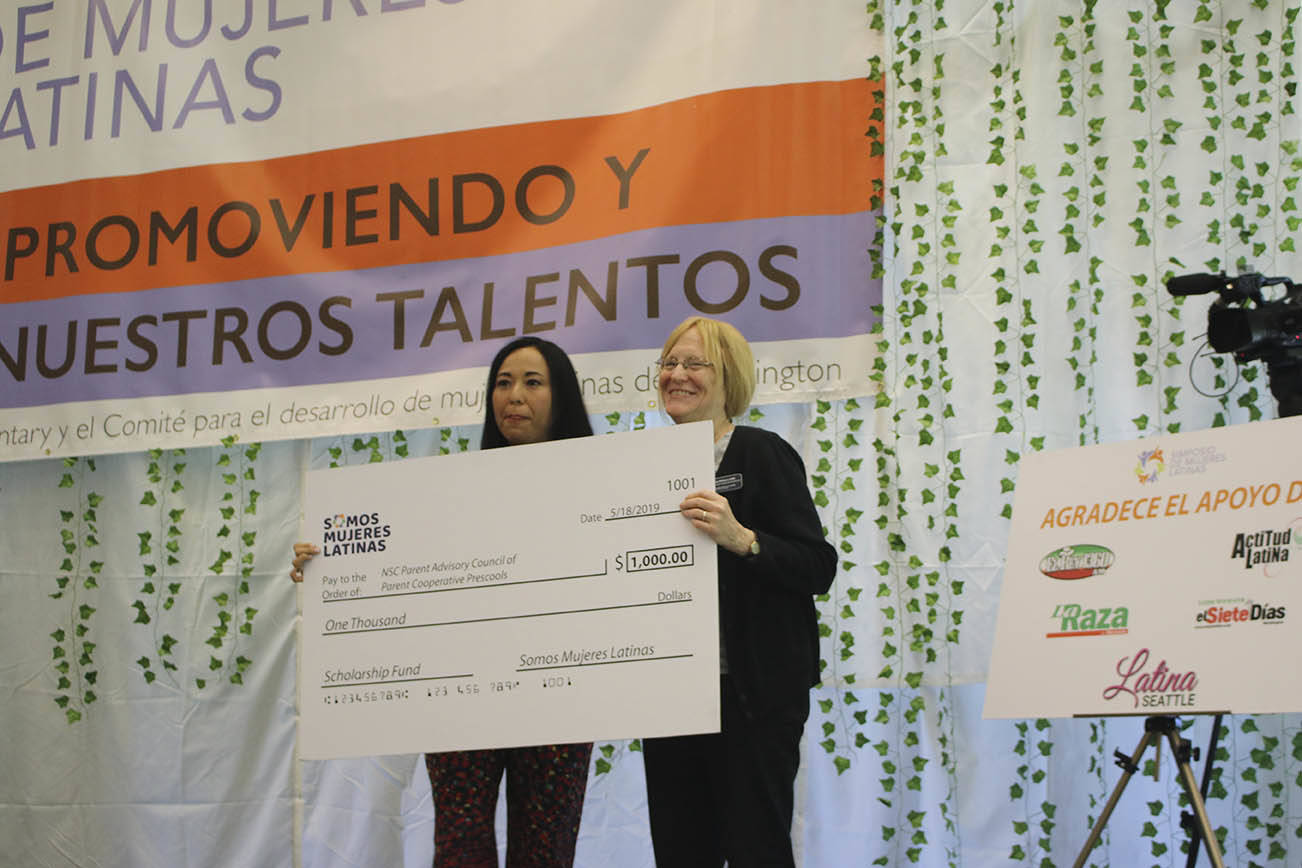By Oscar Rodriguez
With more than 300 attendants crowded into a single room, the Annual Latina Symposium hosted at North Seattle College is bigger than ever. But recently, it sprouted its own official offshoot, Somos Mujeres Latinas.
With only a week in existence, this non-profit seeks to improve the Latina community through education, according to Symposium director Veronica Duran Sisk.
“Queremos que todas las mujeres tengan un espacio para desarrollarse” Sisk said. “Un lugar para pertenecer, para crecer como mujeres.”
Originally, the symposium was held under the umbrella of the North Seattle College Parent Advisory Council, which administers scholarships for student-parents with financial needs.
Having gained some self-sufficiency, Somos Mujeres Latinas contributed $1,000 to the Parent Advisory Council scholarship fund as a sign of gratitude for the support they had received over the years. This donation forms part of the organization’s mission to support the Latino community through financial assistance like scholarships or directly with their annual symposium.
Somos Mujeres Latinas plans on continuing its partnership with North Seattle College in some capacity, according to Associate Vice President of diversity, equity, and inclusion D’Andre Fisher. The college offers a home for the symposium free of charge, and they are proud of their continuous support.
“This is how we truly support our communities,” Fisher said. “This symposium is amazing. It’s phenomenal, and this is what all colleges should be looking forward to doing.”
In keeping with the mission, Jacque Larrainzar was invited as the main speaker to explain this year’s theme: strength in diversity.
Larrainzar has worked on behalf of the Latino community here in the United States since 1997 when she became the first Lesbian-Mexican to obtain political asylum based on her sexual orientation. Currently, she works as race and equity analyst for the city of Oakland, California.
At last Saturday’s symposium, Larrainzar explained the importance for Latina women to understand the intersectionality that exists within the Latino community. For Larrainzar, this need grows more pressing with the upcoming 2020 census.
“El censo determina cuánto dinero va a programas que sirven a nuestra comunidad, a las organizaciones que nos ayudan, infinidad de programas que apoya a nuestra comunidad,” Larrainzar said. “Pero estas cosas nos confunden. Chequo, soy Latina? Soy Mexicana? Soy Salvadoreña? Soy de piel blanca. Soy negra. Soy asiatica. No sabemos, eso daña mucho nuestra comunidad.”
For many, this was their first exposure to the subject of intersectionality or the recognition that others were struggling with these same issues. For Veronica Martinez, a volunteer at the symposium, participating in such a progressive discussion was exciting.
“Se me enchina la piel,” Martinez said.
The symposium also awarded the “Manos Unidas” award — an award that recognizes the contributions of extraordinary individuals for the Latino community — to Executive Director of El Centro de la Raza Estela Ortega. Switching between Spanish and English, Ortega recounts how as a child her parents insisted that they learn English as their first language. Her parents feared the discrimination or violence that speaking Spanish would incur.
“Dominant white culture perpetuated the stereotype that Mexicans who spoke Spanish were lazy, stupid, and without worth,” Ortega said. “Even in the late 1960’s, there were still signs posted in restaurants that said: no dogs or Mexicans allowed.”
It wasn’t until hard-working individuals like Martin Luther King Jr. and Cesar Chavez organized to counter these long-established cultures, according to Ortega.
And while Ortega’s story recalls a dark moment of the United State’s past, Milvia Berenice Pacheco tells a story of self-affirmation. Pacheco, an Afro-Latina artist from Venezuela, performed an original dance and poem at the symposium. The performance began with the question: “De donde vengo?”
Pacheco elaborated on the original question during a panel. She recalled her arrival to the United States and how she became confused as the people around her would attempt to pin her identity down.
Born an Afro-Latina from Venezuela, people would commonly ask if she was either African or Venezuelan, erasing any nuance to her identity.
“Para mi,” Pacheco said, “la importancia de identificarme como Afro-Latina es reconocer y valorar todo el valor de la plenitud en mí, el valor de mi ancestros, el valor de mi comunidad.”


